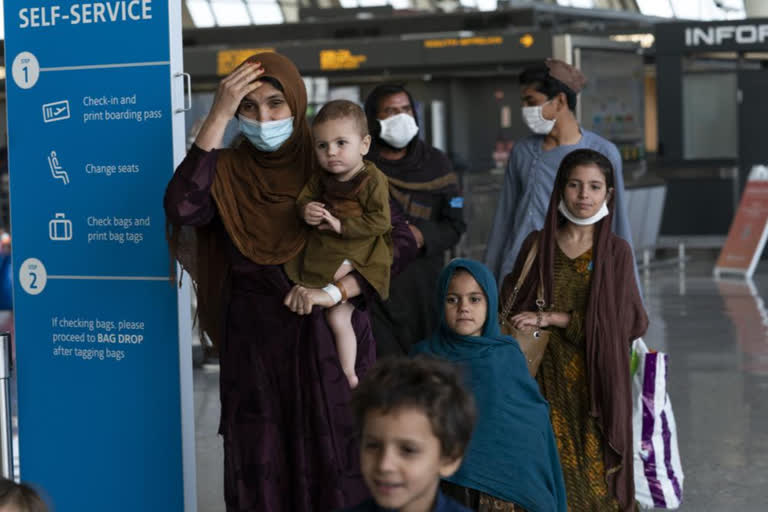Kabul: In the wake of the Taliban's takeover of Afghanistan many people who fear for their lives are still attempting to flee the country.
Only Qatar and Pakistan continue to operate evacuation flights, but those are made difficult by the Taliban who examine flight lists and every name on them, and a lack of immigration officials to carry out vital checks.
Those with foreign and British passports are still attempting to leave the country, despite the U.K. and other countries having ended their evacuation flights.
Speaking to U.K. broadcaster Sky, many have expressed frustration and fear at their situation.
One man, a journalist who had been beaten and tortured by the Taliban before, fears for his life.
"I think if they arrest me again, and on the time I was a journalist, this time they will kill me," he told Sky News. Others have felt trapped and helpless, even with British citizenship.
Also read: Afghans face tough economic conditions, choices
One man who was at the airport in Kabul and had managed to secure a flight out said: "Our foreign office, they called me twice in almost a month," adding: "I feel abandoned and hopeless. At least I'm going home now."
Qatar's Emir and Pakistan's foreign minister have both warned world leaders against turning their backs on the country's Taliban rulers.
Speaking at the U.N. General Assembly Sheikh Tamim bin Hamad Al Thani stressed “the necessity of continuing dialogue with Taliban because boycott only leads to polarization and reactions, whereas dialogue could bring in positive results.”
Pakistan’s foreign minister meanwhile told reporters at U.N. headquarters earlier this week that Taliban rulers should understand that if they want recognition and assistance in rebuilding the war-battered country “they have to be more sensitive and more receptive to international opinion and norms.”
The top leadership of the Taliban for years has operated out of Pakistan, which shares a border with Afghanistan and is home to large numbers of Afghan refugees.
Despite their promises of an open and inclusive system, there have been numerous troubling signs that the Taliban are restricting women’s rights and targeting activists and those they battled against as they settle into government after taking control of the capital of Kabul last month.
During their previous rule of Afghanistan in the 1990s, the Taliban had denied girls and women the right to education and barred them from public life.
AP



